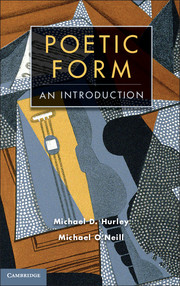Chapter 4 - Elegy
Published online by Cambridge University Press: 05 November 2012
Summary
For so to interpose a little ease,
Let our frail thoughts dally with false surmise
Milton (Lycidas)The earliest surviving elegies of ancient Greece engaged miscellaneous topics: the term elegy denoted a specific verse form rather than specific subject matter; elegion referred to a poem in couplets composed of a hexameter followed by a pentameter. There is a suggestion of sadness and lament in the term elegos (Latin elegi), however, so it may be that the oldest elegies were originally connected with grief, and that the mournful elegos was discontinued by the lyric poets ‘under some kind of pressure from the religious reforms of the sixth century’, such that it survived ‘only as a literary term’. In any event, Latin adaptations of the elegiac form continued the miscellaneous approach of the Greek exemplars, albeit with an increasing focus on the amatory complaint. Early English versions of ‘elegy’ admitted an equal variety of themes. It was not until around the sixteenth century that the English elegy took on its modern meaning, as being identified with mortal loss and consolation.
The reasons for this identification of elegy with loss and mourning are many and varied. Most important, though, was the Reformation. The Catholic tradition of praying for the repose of the soul offered a ritual for expressing grief, whereas the Protestant doctrine that replaced it held that nothing mourners might do could influence the fate of the deceased; and so, the elaborate practice of the Catholic Requiem Mass disappeared, chantries were closed, and the focus of funeral observances consequently shifted towards the secular. Dennis Kay describes how, just as the sonnet is an ‘aggregative form’ – in which practitioners ‘defined their individuality against their predecessors’ and ‘consciousness of tradition, repetition, translation, and imitation was inseparable from innovation and invention’ – the post-Reformation elegist faced ‘in an especially well-defined way the problem of fitting words to the special requirements of an occasion and of arguing for uniqueness both for the subject and for the elegy’. Hence the habitual elegiac protestations of sincerity, inexpressibility and individuality.
- Type
- Chapter
- Information
- Poetic Form , pp. 100 - 119Publisher: Cambridge University PressPrint publication year: 2012

